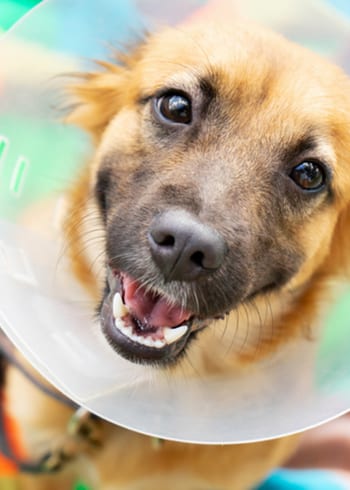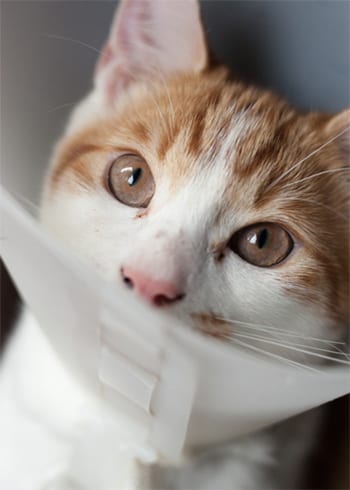Emergency Cat & Dog Surgeries in Lakeland, FL
We regularly perform emergency cat and dog surgeries to treat injuries and save patients’ lives. Whether your dog or cat sustained an injury from an accident or ingested a harmful foreign body, our skilled team is available to provide exceptional care in our state-of-the-art surgical suite, which is outfitted with the latest and most reliable monitoring equipment. If your pet requires surgery to help them overcome a serious injury or illness, we’ll be sure to give you the information you need to understand their treatment and how it will improve their quality of life. In stressful situations such as these, we’re always here to answer questions and put your mind at ease.
Call us today at (863) 665-3199 if your pet requires immediate care.

Our Veterinary Surgery Safety Protocols
The safety of our patients always comes first, and that is no truer than when we perform veterinary surgeries. To ensure your pet’s safety for the duration of their time in our care, we:
- Conduct an exam and blood work to ensure that your pet can be safely anesthetized
- Tailor their anesthesia, antibiotics, and pain medication to their age, weight, and overall condition
- Closely monitor your pet’s vitals throughout their surgical procedure
- Administer IV fluids as needed during surgery to maintain stable blood pressure and hydration in your pet
- Administer pain control before, during, and after the procedure to minimize discomfort
- Keep a close eye on your pet while they’re in recovery to ensure they wake up from the anesthesia safely
What Can I Expect with My Pet’s Recovery?
The length of your pet’s recovery and the amount of restrictions you’ll need to enforce to keep them safe will vary depending on how intensive their surgery was. Some dogs and cats will need to stay at our hospital for 24 hours or more so we can continue to monitor their progress. Others may be able to return home the same day.
An e-collar or some other type of protective covering may be required to keep your pet from worrying at their surgery site. Other things we recommend include:
- Watching your pet closely throughout the day to make sure they don’t lick or scratch at their incision site
- Keeping your pet in a quiet, low-traffic area of the house for however long your veterinarian recommends so they can rest
- Keeping your other pets (if you have them) separated from your dog or cat (ask your veterinarian about how long this should be)
- Not allowing your pet to swim or get a bath until after their sutures have been removed
- Checking your pet’s incision site for redness/swelling, hardening of the skin, seepage, discoloration, and unusual odor

